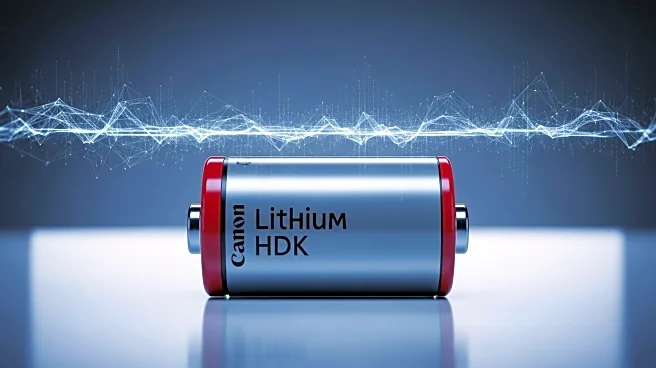What's Happening?
The U.S. Department of Energy (DOE) has entered into an agreement with Vancouver-based Lithium Americas, acquiring a five percent equity stake in the company. This deal is part of a broader arrangement where the DOE will defer $182 million in debt service over the first five years of a $2.26 billion loan previously announced. The funds are earmarked for a lithium carbonate project in Nevada, which has been under development since 2023. The project is a joint venture between Lithium Americas and General Motors (GM), aimed at producing lithium, a critical mineral for battery production and grid storage solutions. The DOE's involvement underscores the strategic importance of securing domestic lithium supplies to support the growing demand for electric vehicles and renewable energy storage.
Why It's Important?
This development is significant as it highlights the U.S. government's commitment to bolstering domestic production of critical minerals like lithium, which are essential for the transition to clean energy. By investing in the Nevada lithium project, the DOE is not only supporting the mining industry but also ensuring a stable supply chain for lithium, which is crucial for electric vehicle batteries and other energy storage technologies. This move could potentially reduce U.S. reliance on foreign lithium sources, thereby enhancing national security and economic stability. The partnership with a major automaker like GM further emphasizes the collaborative efforts between the government and private sector to advance the country's clean energy goals.
What's Next?
The successful development of the Nevada lithium project could lead to increased production capacity, meeting the rising demand for lithium in the U.S. and potentially lowering costs for battery production. As the project progresses, it may attract further investments and partnerships, potentially spurring innovation and job creation in the mining and clean energy sectors. Stakeholders, including environmental groups and local communities, will likely monitor the project's environmental impact and economic benefits closely. The DOE's involvement may also set a precedent for future government investments in critical mineral projects.











